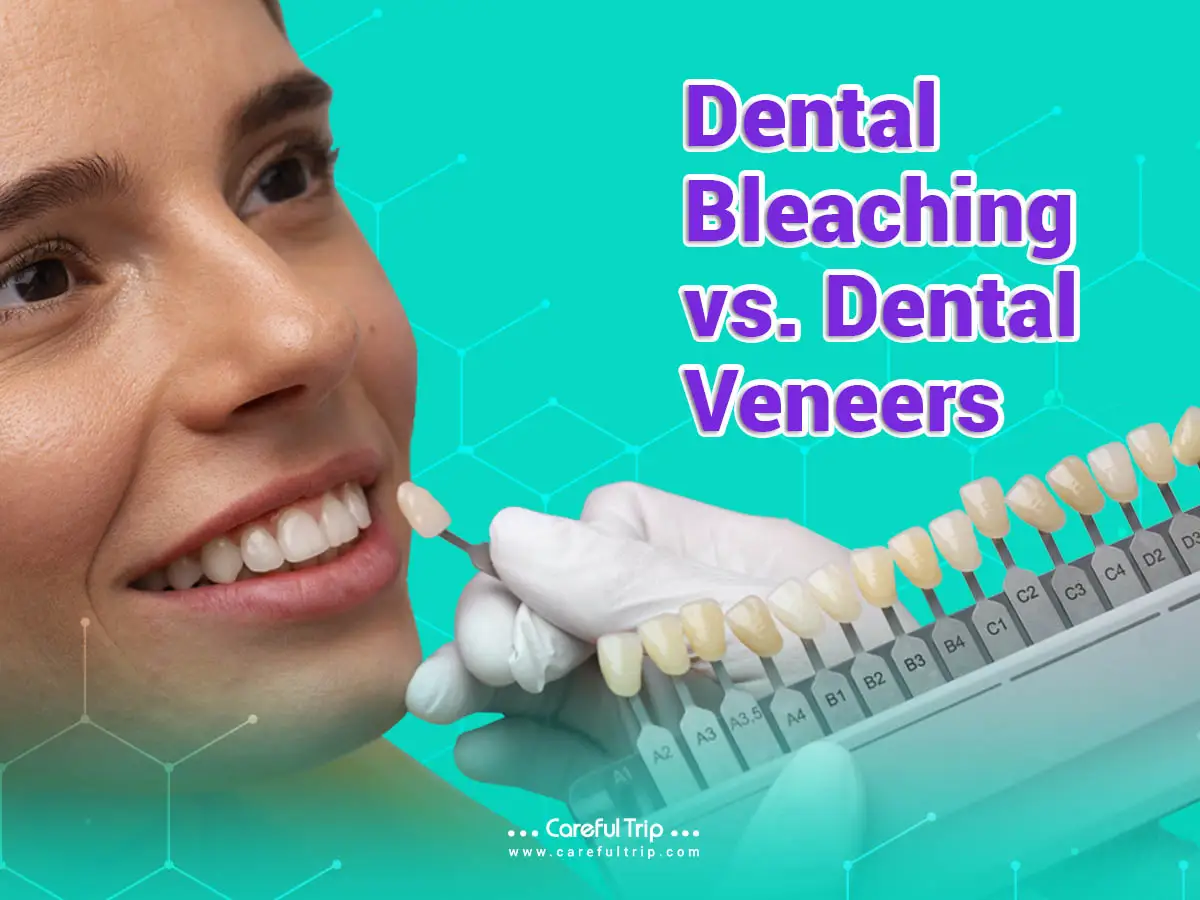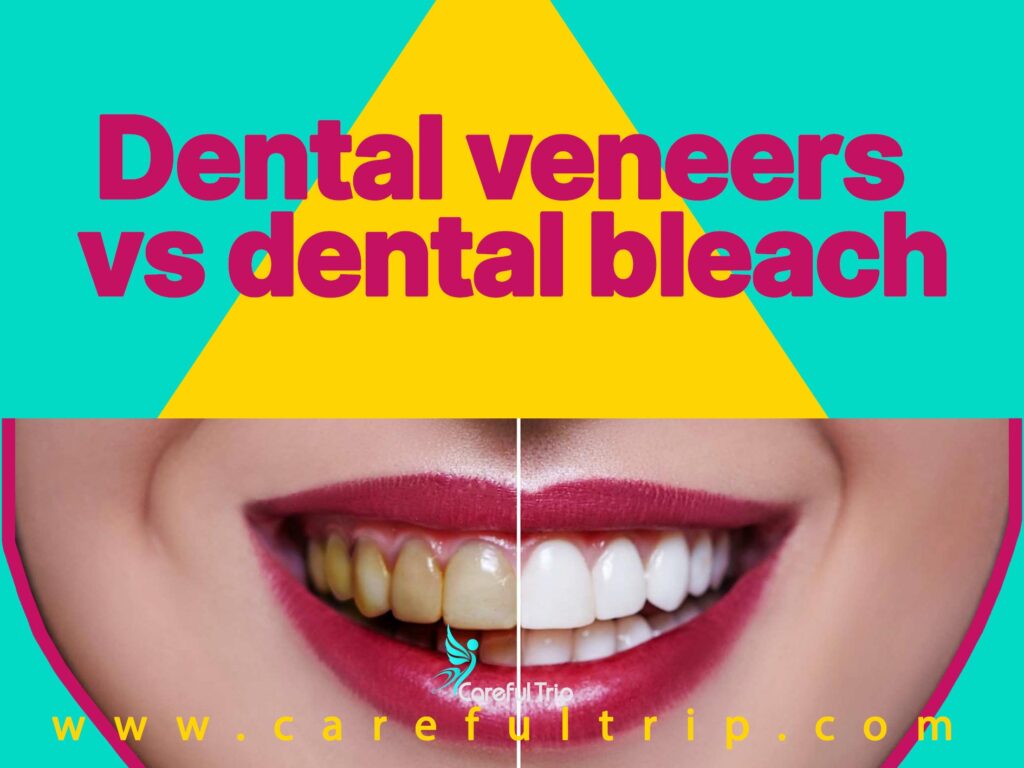
Teeth can become discolored due to a variety of factors including the consumption of certain foods and drinks, smoking, medications, and the natural aging process. Over time, these elements cause the enamel to lose its luster and allow underlying colors to show through, which can significantly impact the brightness of your smile. This discoloration not only affects appearance but can also influence self-confidence and the way you present yourself in both personal and professional settings.
To achieve a whiter, more radiant smile, many people turn to cosmetic solutions such as dental bleaching and dental veneers. Dental bleaching works by breaking down stains and lightening the teeth gradually, while dental veneers involve applying thin, custom-made shells over the teeth to enhance their color and shape instantly. Understanding the differences between these procedures—including their benefits, limitations, and maintenance requirements—can help you decide which option best suits your specific needs and aesthetic goals.
What Is Dental Bleaching?
Dental bleaching is a cosmetic procedure designed to whiten your teeth by removing stains and discoloration. Bleaching can be performed in a dental office or at home using over-the-counter products such as whitening toothpaste, rinses, bleaching strips, or custom-fitted trays.
- In-Office Treatments: Dentists use high-concentration hydrogen peroxide or carbamide peroxide for faster and more dramatic results. These treatments typically take only a few minutes and are designed to minimize discomfort.
- At-Home Options: Over-the-counter products offer a low-cost alternative, though outcomes may vary and they may not be effective for all types of stains.
Bleaching is ideal for extrinsic stains (from food, drink, and smoking). However, severe discoloration—especially intrinsic staining from factors like tetracycline exposure—may not respond as effectively to bleaching alone.
For more information, read:
What Are Dental Veneers?
Dental veneers are thin, custom-made shells, usually made from porcelain or composite resin, that cover the front surface of your teeth. They are designed to improve the appearance of your smile by masking discolorations, chips, gaps, and minor misalignments.
- Porcelain Veneers: Offer superior aesthetics, durability, and a natural appearance. They require the removal of a small amount of enamel, making the process irreversible.
- Composite Veneers: Typically less expensive than porcelain veneers and require minimal enamel removal. They can be applied directly by your dentist and are easier to repair.
“Veneers are costly but last a long time. They also can resolve a number of dental issues at once – chipped teeth, uneven spacing, and discoloration,” – Dental Health Society
Dental Bleaching vs. Veneers: Which Is Right for You?
Effectiveness and Limitations
- Dental Bleaching:
- Pros:
- Non-invasive, safe, and relatively quick.
- Effective at removing surface stains from food and beverages.
- Lower cost compared to veneers.
- Cons:
- May not completely eliminate deep intrinsic stains.
- Results can diminish over time, requiring periodic touch-ups.
- Best For: Individuals with moderate, extrinsic discoloration who desire a natural-looking, brighter smile without altering tooth structure.
- Pros:
- Dental Veneers:
- Pros:
- Provide a customizable and long-lasting solution.
- Correct multiple aesthetic issues (discoloration, chips, gaps, misalignments) in one procedure.
- Offer an instant and dramatic transformation.
- Cons:
- Involves irreversible removal of some enamel.
- Higher initial cost and may require replacement after approximately 15 years.
- Best For: Patients seeking a permanent solution for severe discoloration or multiple cosmetic imperfections.
- Pros:
For more information, read:
Dental Bleaching vs. Veneers: Procedures and Recovery
The Dental Bleaching Procedure
- Initial Consultation and Cleaning: Your dentist will examine your teeth, clean any plaque or tartar, and address cavities or decay.
- Application of Bleaching Agent: A bleaching chemical is applied to your teeth, left on for a set period, removed, and then reapplied as needed.
- Multiple Sessions: While some patients see immediate results, multiple sessions might be necessary for optimal whitening.
- Aftercare: Your dentist may recommend whitening plates or touch-up treatments to maintain the results.
The Veneer Procedure
- Preparation: A small amount of enamel is removed from the front of your teeth to make room for the veneer.
- Impressions and Lab Work: Imprints of your teeth are taken and sent to a lab where custom veneers are fabricated.
- Temporary Veneers: Temporary veneers may be placed while you wait for your custom veneers.
- Bonding: Once the veneers are ready, they are permanently bonded to your teeth with dental cement. The process is finalized with adjustments and polishing for a natural look.
- Aftercare: Veneers require good oral hygiene and periodic dental visits for maintenance.

Dental Bleaching vs. Veneers: Longevity and Maintenance
- Dental Bleaching: Results can be seen immediately, but the effects may fade over time. Maintenance treatments are typically needed every few years, depending on your lifestyle and dietary habits.
- Dental Veneers: With proper care, veneers can last up to 15 years. However, they are more susceptible to damage from habits like teeth grinding or biting on hard objects, and replacement may be necessary if they chip or fall off.
For more information, read:
Dental Bleaching vs. Veneers: Cost Considerations
The cost of cosmetic dental treatments varies widely:
- Dental Bleaching: Generally less expensive, with in-office treatments costing significantly less than veneers. Over-the-counter options offer the most affordable price point.
- Dental Veneers: Typically a higher investment, with composite veneers costing less than porcelain veneers. While veneers offer a longer-lasting solution, they involve a higher upfront cost.
Dental Bleaching vs. Veneers: Which Option Should You Choose?
Your choice between dental bleaching and veneers should depend on:
- Severity of Discoloration: Mild to moderate stains may be effectively treated with bleaching, while severe or intrinsic stains might require veneers.
- Cosmetic Goals: If you need additional corrections beyond whitening (such as repairing chips or gaps), veneers might be the better choice.
- Budget and Longevity: Consider both the initial cost and long-term maintenance. Bleaching offers a less expensive, reversible option, whereas veneers provide a durable, permanent solution.
Discuss your options with your dentist to develop a personalized treatment plan that meets your aesthetic and functional needs.
For more information, read:
Final Thoughts
Both dental bleaching and veneers offer effective ways to enhance your smile, each with its own set of advantages and limitations. By considering factors such as the type of discoloration, cosmetic goals, cost, and longevity, you can make an informed decision about the best approach for your dental care.
Consult your dentist for a thorough evaluation and personalized recommendation, or contact CarefulTrip for expert guidance on cosmetic dental treatments in Iran.
Sources
- American Academy of Cosmetic Dentistry – Dental Bleaching vs. Veneers
- Mayo Clinic – Cosmetic Dentistry Options
- Iran Health Tourism News – Dental Cosmetic Treatments in Iran

